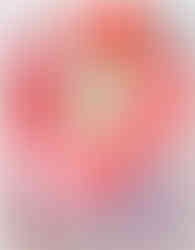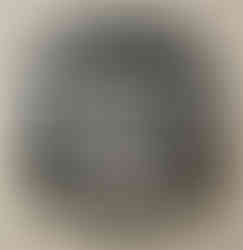Rarities, 16.06.21 - 18.07.21
- Cache Studio

- Sep 1, 2021
- 4 min read
Guest curator:
Marc Knowles
Artists
Bridget Keating
Colin Muir Dorward
Betino Assa
Marc Knowles
Ocasionally an artist will be invited to curate an exhibition of primarily non-represented artists (the occasional exception confirming the rule). The choice of the participants will always rely on the quality of their work and on their elective affinities. The curator is invited to include his own work in the exhibition.
For the first iteration of this program, we asked Marc Knowles to collaborate with us. He chose three other artists to conceive the show Rarities.
In the words of the curator:
Rarities presents the work of four mid-career Canadian painters who lack visibility in the Montreal art scene. Perhaps this is because Betino Assa, Bridget Keating, Marc Knowles and Colin Muir Dorward all follow their singular visual journeys without worrying about the latest trends in contemporary painting. The pictorial universe of each artist reflects the influence of their immediate environment, as well as their own personal identity and that of their generation.
The works of the exhibition are mainly figurative, but abstraction plays an important role in it, deconstructing faces in the paintings of Bridget Keating and amplifying the mysterious in the retro-futuristic environments of Marc Knowles. Betino Assa and Colin Muir Dorward create rustic spaces where the assemblage of detritus play the role of geographic and historical revealers.
Bridget Keating
Bridget Keating (b. Nova Scotia, 1979) holds a B.F.A. from NSCAD University (2003) and an M.F.A. from Concordia University (2008). She has exhibited in Montreal and Halifax in group and individual exhibitions, including Khyber Center for the Arts in 2003 and Galerie PUSH in 2010. Bridget currently lives and works in Montreal, and sometimes Cape Breton, teaching studio art courses for Cape Breton University since 2010.
With interest in gendered perspectives, portrayals, and perceptions, Bridget Keating draws on original and found images and tropes to create portraits of thoughts and experiences. Fragmented, cropped, erased, damaged, shrouded, shadowed, abstracted, bodies, faces, objects, and surfaces pervade imagery painted in varied techniques. While exploring linkages of image, object, individual, and other, themes of fragility of lives, selves, and relationships recur. Small in scale, soft in palette, heavy with the artist’s hand, the work troubles relations of roughness and delicacy, intimacy and distancing, calm and sinister, particular and abstract.
Betino Assa
Betino Assa was born in Bulgaria and currently lives and works in Montreal, Quebec. Assa holds a B.F.A. from the University of Manitoba (2009), and a M.F.A. from Concordia University’s Print Media Department (2014). He has shown in solo exhibitions at Ken Segal Gallery (Winnipeg) and group exhibitions including RBC Painting Competition at The Power Plant (Toronto), BMO 1st Art Group Exhibition at the Museum of Contemporary Canadian Art (Toronto) and Winter Warmer at Ace Art Inc. (Winnipeg). Assa has been the recipient of honorable mention at the 2012 RBC Painting Competition, Mitch Gowler Memorial Award, Heinz Jordan Prize in Printmaking and in 2009 he was awarded the prestigious BMO 1st Art! Invitational Student Art Competition.
His work re-examines the surfaces, forms and dwellers of the industrial urban environment as a response to our society’s increasingly alienated character. Using industrial materials like rusted metal, brick, or concrete, which accumulate markings left behind over time, he creates fields or spaces of his own, sometimes painted, sometimes in photographs or prints worked over with drawn or painted markings—simultaneously textural, messy and abstract. The urban animals and plants that inhabit these environments adopt humanlike traits, behaviours and strategies. The human presence is manifest in traces—not the people themselves, but evidence of their passage: plastic utensils, shoes that were left behind, an apple core—a world of non-places occupied by lost beings and objects
Colin Muir Doward
Colin Muir Dorward was born in 1979. He obtained his BFA from Emily Carr University in 2007. While completing his MFA at the University of Ottawa, he won Honorable Mention in the RBC Painting Competition. In 2014, he was awarded the Robert and Isabel Pope Painter’s Residency at NSCAD University, where he produced work which was later acquired by the National Gallery of Canada. In 2019, Dorward obtained his PhD from University of Western Ontario for his dissertation The Medieval Genesis of a Mythology of Painting, and its accompanying body of work Painting Has a Great Memory, but No Plan. Colin presently resides in Yukon where he operates SSDP Studios, which host a sound-recording residency for local artists.
These works by Colin Muir Dorward are examinations of his new habitat in Yukon. They are produced during weekend camping trips and short-term teaching contracts in the communities. Producing these works helps him understand the light and get acquainted with his new environment. These works are painted in goldpans, in accord with a regional tradition.
Mark Knowles
Marc Knowles (b. Ottawa, 1982) holds a Bachelor of Fine Arts from Concordia University (2008) and a Master’s of Fine Arts from NSCAD University (2016). During his time in Halifax, he was selected for the 2015 and 2016 editions of Peinture fraîche et nouvelles constructions at Art Mûr in Montreal. After graduating from NSCAD University, he presented his solo exhibit Hard Edge World at Gallery AVE in Montreal. In 2019, the artist was selected to participate in the 10th edition of the Foire d’art contemporain de Saint-Lambert. Knowles lives and works in Montreal.
Marc Knowles paints a world combining abstraction with fantastic landscapes, creating spaces that are retro-futuristic, psychedelic and personal at the same time. Within this universe, forms similar to fragments of natural and man-made structures—stalagmites, geodes, pyramids and buildings—are depicted in a manner reminiscent of crude computer graphics. These geometric structures appear in almost fluid environments that question the relationship between rigidity and fluidity in contemporary painting.










































































Comments